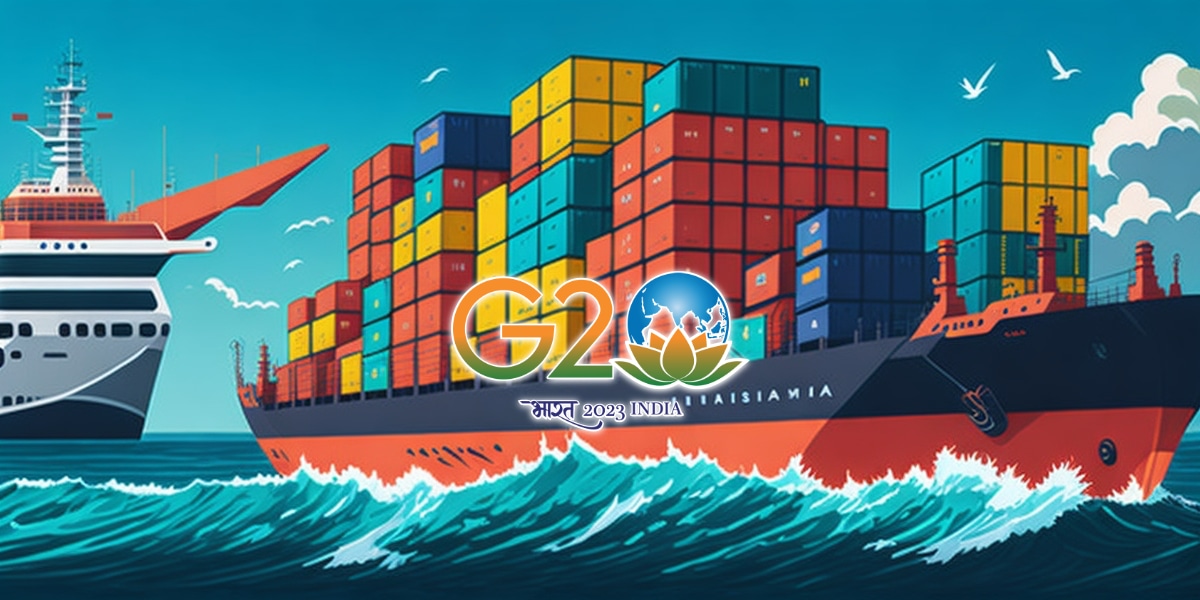The G20 Summit 2023 being held in India has sent ripples of change through the shipping and logistics industry, promising transformational effects, particularly for Small and Medium-sized Businesses (SMBs). In a rapidly evolving global landscape, the decisions made at this summit will significantly influence the future of SMBs operating in this sector.
Enhancing Trade and Economic Cooperation
One of the standout announcements from the summit involves plans for a rail and shipping corridor connecting India to the Middle East and Europe. This ambitious infrastructure project aims to streamline the movement of goods between these regions, offering a shorter and more efficient trade route. For SMBs involved in international trade, this development holds the promise of expanded markets and enhanced trade opportunities.
Principles for Equitable Access
India’s proposal of principles for fair and equitable access to logistics for developing countries is another pivotal moment for SMBs. These principles seek to level the playing field, ensuring that businesses in developing nations have equal access to logistics networks, effectively reducing barriers to entry for SMBs. This initiative could empower SMBs to compete on a global scale, creating a more inclusive and competitive marketplace.
Addressing Climate Challenges
The G20 discussions on addressing climate change in the shipping and logistics industry are crucial for SMBs, as they navigate an increasingly eco-conscious market. Measures to reduce emissions from ships and improve the energy efficiency of logistics operations are on the horizon. SMBs that embrace sustainability practices may find themselves better positioned in the global marketplace, meeting the demands of environmentally conscious consumers and partners.
Digital Transformation and Security
Digitalization and security are intertwined in the modern shipping and logistics landscape. The G20 summit has touched on the importance of embracing digital technologies like blockchain and artificial intelligence to enhance efficiency and transparency. SMBs that adapt to these innovations can streamline their operations, improve customer experiences, and stay competitive.
Simultaneously, the summit has addressed the critical issue of cybersecurity within the industry. SMBs, often viewed as attractive targets by cybercriminals, stand to benefit from global cooperation on measures to prevent cyberattacks and ensure the security of data and cargo.
Sustainability as a Competitive Edge
Finally, sustainability remains at the forefront of discussions, with emphasis on reducing the environmental impact of the shipping and logistics industry. SMBs that proactively adopt sustainable practices can gain a competitive edge by meeting the expectations of eco-conscious consumers and partners. Sustainability is not just a responsibility but a potential source of differentiation and business growth.
In conclusion, the G20 Summit has paved the way for significant changes in the shipping and logistics industry. SMBs, often agile and adaptable, should seize these opportunities to thrive in a rapidly evolving global marketplace. By embracing the principles of equitable access, sustainability, and digital transformation, SMBs can position themselves as key players in the future of the shipping and logistics landscape. The decisions made at this summit will shape the industry for years to come, and proactive SMBs stand to be the biggest beneficiaries of these transformations.






